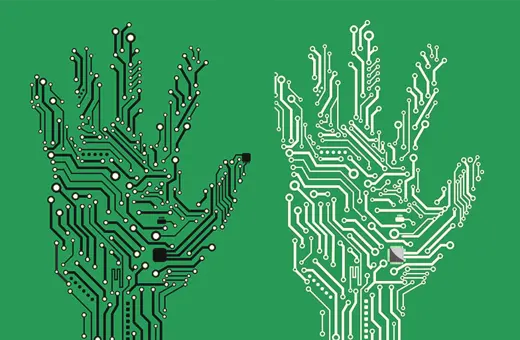With conspiracies and misinformation on the rise, many believe that we should dispense with propaganda and emotion in favour of a rational, fact-based approach to persuasion. But this is not necessarily effective and in some cases counterproductive argues Anna Hennessey. Propaganda should not be a dirty word and whether it be in matters of public health or political security, we mustn’t be scared to embrace it.
When asked recently on National Public Radio about how to awaken people to important matters such as nuclear winter and climate change, esteemed American climatologist Alan Robock explained that “intellectually is not the way to do it, you need to touch people’s feelings.” Publishing more academic journal articles, will not transform ideology, he suggested. More emotionally charged forms of communication, such as popular publications and film, have a higher impact on how people establish their understandings of the world.
Try as we might, our use of data and evidence to prove our points, be they of a scientific, cultural, or historical nature, often fall flat with our audiences. Numerous studies have shown that due to a myriad of cognitive biases such as belief perseverance and confirmation bias, facts unfortunately do not change people’s minds. One of the key historical figures who understood this was Edward Bernays, Sigmund Freud’s nephew and father of the field of Public Relations. Born in Vienna in 1891, Bernays died in Cambridge, Massachusetts in 1995, living a long, prolific life and architecting profound changes in American society from behind the scenes. The use of emotions, not science or facts, became central both to Bernays’ work and to his success.
___
While many in political, academic, and public spheres attempt to prove their points and change others’ perspectives through facts, science, analysis and argumentation, there may be other important ways of getting to the goal.
___
Surprisingly, Bernays and his ideas continue to exist beneath the radar of most contemporary scholars, and many in the academic sphere have never heard of him. Jason Stanley, a philosophy professor at Yale, has examined propaganda at length and argues we must understand how it works. But Bernays is seldom of interest to scholars as they discuss such hot button topics as war, disease, racial equity, climate change, etc., and many do not understand the extent to which tapping into human emotions is essential to everything they talk and write about.
Bernays merged psychology and marketing to create modern forms of propaganda, never underestimating the power that emotions and stories have over scientific facts. Learning from Freud that people are fundamentally irrational and guided by their senses, he used his uncle’s theories on the human psyche for practical purposes and to develop the field of Public Relations.
SUGGESTED VIEWING Dangerous desires With Joanna Kavenna, David Nutt, Güneş Taylor, Anna Waldstein
As mapped out in his slim 1928 book, Propaganda, Bernays explains that to sell products, companies have the capacity to tap into human desire, connecting the purchase of a product to the fulfillment of a desire. Most often, the desire has nothing at all to do with the product, but Bernays was an expert at fusing the two: “A man buying a car may think he wants it for purposes of locomotion, whereas the fact may be that he would really prefer not to be burdened with it, and would rather walk for the sake of his health. He may really want it because it is a symbol of social position, an evidence of his success in business, or a means of pleasing his wife.






















Join the conversation